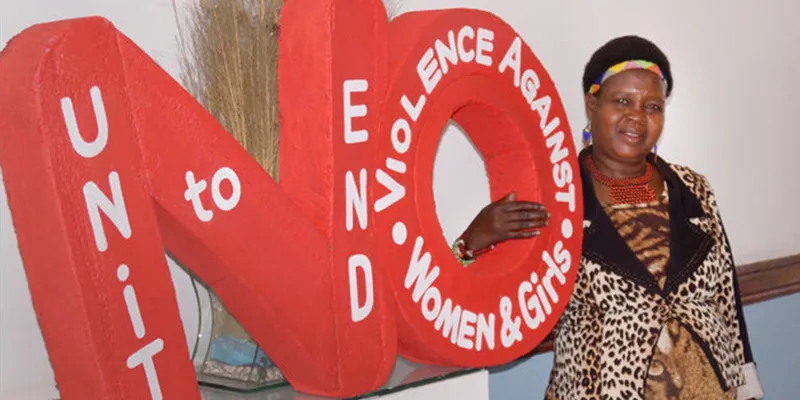Theresa Kachindamoto's radical step has saved the lives of 850 Malavi girls
Malawi, a land-locked country in the south-east of Africa, has a population of more than 9,00,000 people. According to a 2012 United Nations survey, it ranks eighth out of 20 countries with the highest child marriage rates in the world. The same report states that one in every two Malawi girls was married before the age of 18.

However, these child-brides have found a messiah in the form of their chief – Theresa Kachindamoto, who is on a mission to end the practice of child marriage and send these girls back to school.
Before being called back by the seniors of the village, to become the senior chief of the locality, Theresa served as a secretary at a city college in Zomba, a district in Southern Malawi, for 27 years. When she answered the summons and returned to her homeland, she was shocked to see twelve-year olds walking around with babies on their hips.
That was the moment she knew that she had to bring about a change in the system, starting with reaching out to the parents of these children. “I told them: 'Whether you like it or not, I want these marriages to be terminated,” she said in an interview with Al Jazeera.
Marriage under the age of 18 is illegal under Malawi law. However, custom seemed to supersede law, and child marriage via parental consent still pervaded. Theresa herself had to face the end of the dagger, including a creative variety of death threats from the parents and families of the children themselves. These parents demanded that she would not interfere with age-old traditions.
Undaunted, Theresa went on to terminate 330 child marriages, of which 175 were ‘girl-wives’ and 155 were ‘boy-fathers’, as reported by the local papers last June. Child marriages and pregnancies result in the majority of the female students dropping out of school post the eighth grade. At the point, the parents of the girls are desperate to marry them off so as to relieve the burden of supporting them, according to a report by Human Rights Watch. “Most of them say ‘It’s better that she gets married. We can't afford to keep her ... she will make us poorer,’” said Emilida Misomali, a local activist against child marriage.
Bernadetta Matison, who was married and pregnant at 15 told UN Women, “I dropped out of school because I got pregnant. I’ve seen the evils of getting married at a young age. When I think about it now, I realise that getting married at such a young age isn’t a good thing. At the end of the day, we still lack the things that brought us into the marriage in the first place, like soap and lotion and other basic items. Some even get beaten, which isn’t right.”
To top matters, these girl children are forced to go to sexual initiation camps, where they are made to learn the art of pleasuring their future husbands. Sometimes, they are forced into sexual intercourse with the teacher or appointed male members to prove their abilities. Considering the fact that one in ten people in Malawi are infected with the HIV virus, these girls dangerously risk ill health and even early death.
Realising that reaching out to the parents was of no avail, Theresa made 50 of her sub-chiefs sign an agreement to end child marriage in her area of authority. Not only this, she ensured that the leaders would annul any existing underage unions and send these children back to school. When she got wind that some of these sub-chiefs had not followed orders and terminated these unions, she fired them. A few months later, the same chiefs returned to her and informed her that the unions had been efficiently terminated, as ordered.
Theresa also employs a secret network of parents who are ordered to inform her if other parents take their children out of school. When any of these parents cannot afford the school fees, she pays for the child’s education either from her own pocket, or she secures it from someone who can.
Since she began her fight against child marriage, Theresa has been successful in terminating at least 850 such marriages in Malawi, according to Quartz. She has even called young professional women from the towns to serve as role models for these girls.
“If they are educated, they can be and have whatever they want,” she said.
Earlier this year, Theresa asked the parliament to increase the minimum age of marriage from 18 to 21 in an effort to break the cycle of rural poverty, which, due to the outbreak of several floods and droughts in the recent past, has left Malawi the worse for the wear.







